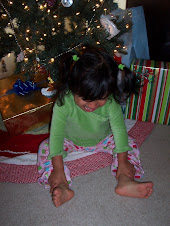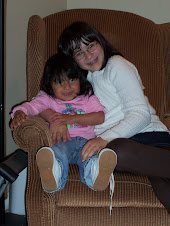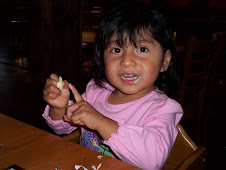Often times I write for the sole purpose of giving my reader something to ponder. This is one of those times. As I begin writing, I am here for the purpose of causing you to think deeply, to encourage you to slow down long enough to ponder. So, here is our definition of the word ponder: a verb - to think about something carefully, especially before making a decision or reaching a conclusion.
How does one who claims to be a follower of Christ know if in fact he/she is following Christ at all? How would one know that they have believed the one true gospel? There are many, in our nation (the US) in particular, who would consider themselves to be "Christians" and yet they never read the Bible or pray. They do not regularly attend church, engage in a small group of believers, or in any other way seek to be encouraged by or held accountable to other brothers and sisters in Christ. (Hebrews 10:23-25)
I'm currently reading: Glimpses of Grace: Treasuring the Gospel in Your Home ~ by Gloria Furman. The point of the particular chapter I'm now reading is that we must understand what it is we mean when we use the term "the gospel". Often times we have our own lingo that we use when talking with one another in our Christian circles and others outside of Christ may have no idea what we mean. What do we mean when we talk about "living out the gospel" or being "gospel focused"? The author writes, "Clarification and careful definitions are the only way we can know that we rightly understand each other. If we aren't clear on what the Christian gospel is, then what is at stake is not merely a harmless misunderstanding but eternal life and death."
So, that begs the following question... Also quoted from this current chapter,
"How do you know if the gospel you live by is Jesus's gospel? Consider how law enforcers learn to identify illegally printed money. They spend the vast majority of their training learning to recognize counterfeit money by studying the real thing. We need to examine the gospel from the scriptures." In order for anyone to know if - what they believe, what they've been taught, what they've heard said, etc., lines up with the Word of God, they must study the Word diligently for themselves and compare these things (their beliefs and their lives) against that Word. Comparison can not be against the words of others, against what others believe, or against the teachings of others about the scriptures and most certainly one must not compare themselves and their own "right living" against others they know. This surely is not a wise measurement. (2 Corinthians 10:12) Yet the scripture often calls us to "examine ourselves". 2 Corinthians 13:5, "Examine yourselves as to whether you are in the faith. Test yourselves. Do you not know yourselves, that Jesus Christ is in you? -- unless you are disqualified." Also, while referencing the taking of Communion, we are called in 1 Corinthians 11:27-29, to examine ourselves before receiving the Lord's Supper, the very representation of the body and the blood of Christ, given to redeem us, which is the gospel.
So, that begs the following question... Also quoted from this current chapter,
"How do you know if the gospel you live by is Jesus's gospel? Consider how law enforcers learn to identify illegally printed money. They spend the vast majority of their training learning to recognize counterfeit money by studying the real thing. We need to examine the gospel from the scriptures." In order for anyone to know if - what they believe, what they've been taught, what they've heard said, etc., lines up with the Word of God, they must study the Word diligently for themselves and compare these things (their beliefs and their lives) against that Word. Comparison can not be against the words of others, against what others believe, or against the teachings of others about the scriptures and most certainly one must not compare themselves and their own "right living" against others they know. This surely is not a wise measurement. (2 Corinthians 10:12) Yet the scripture often calls us to "examine ourselves". 2 Corinthians 13:5, "Examine yourselves as to whether you are in the faith. Test yourselves. Do you not know yourselves, that Jesus Christ is in you? -- unless you are disqualified." Also, while referencing the taking of Communion, we are called in 1 Corinthians 11:27-29, to examine ourselves before receiving the Lord's Supper, the very representation of the body and the blood of Christ, given to redeem us, which is the gospel.
You see, in order for us to know God we must spend time studying "the real thing" - His inspired Word. My words may be given some power if the Holy Spirit chooses to use them in some way to reach one who reads them, but God has promised us that His Words have already come with power (Hebrews 4:12-13, Isaiah 55:11, Romans 10:17) and that everything we need to know in order to live out the "gospel centered life" we so desire is written within those words (2 Timothy 3:16-17). We do not need devotional books and the constant teachings of others. We need only His Word. Please hear me, I am NOT SAYING that using devotionals, Bible studies, or other study tools is a bad thing to do, or that you should not use them. However, I am saying that you must study God's Word as a whole before being able to come to any solid conclusions about God and that you need to study the REAL THING before taking the words of someone else, who's perhaps written the latest fad Bible study series, as truth.
The point I am trying to make here is that we must not take what we're told the Bible says about something and run with it without knowing 1) if it is the truth (because the world and the churches in it are full of false doctrine) and 2) if it fits in light of the entirety of God's Word. Many things can be hinged upon one single verse of scripture, taken out of context and twisted to mean whatever the person saying it wants to say it means. That is a dangerous practice and one that is becoming increasingly the "norm". Rather, we must be like the Bereans spoken of in Acts 17:11, "These were
more fair-minded than those in Thessalonica, in that they received the word with all readiness, and searched the Scriptures daily to find out whether these things were so."
You see, we must be continually searching the Word of God - even after readily receiving a message from a pastor, teacher, friend, or stranger next to you in the grocery line, "to find out whether these things were so." Then, as we go out in our lives and share the gospel of Jesus Christ with others, we
can do so with boldness, with understanding and with wisdom, living out in the flesh the truth of the gospel we hold so dear.
The point I am trying to make here is that we must not take what we're told the Bible says about something and run with it without knowing 1) if it is the truth (because the world and the churches in it are full of false doctrine) and 2) if it fits in light of the entirety of God's Word. Many things can be hinged upon one single verse of scripture, taken out of context and twisted to mean whatever the person saying it wants to say it means. That is a dangerous practice and one that is becoming increasingly the "norm". Rather, we must be like the Bereans spoken of in Acts 17:11, "These were
more fair-minded than those in Thessalonica, in that they received the word with all readiness, and searched the Scriptures daily to find out whether these things were so."
You see, we must be continually searching the Word of God - even after readily receiving a message from a pastor, teacher, friend, or stranger next to you in the grocery line, "to find out whether these things were so." Then, as we go out in our lives and share the gospel of Jesus Christ with others, we
can do so with boldness, with understanding and with wisdom, living out in the flesh the truth of the gospel we hold so dear.
Abiding in His grace, and praying for the strength to return to my writing,
Lori
Interested in pondering our (sometimes constant) need to compare ourselves with others to see how we're doing? You might like to read this article Comparing Ourselves With Others that I wrote some time ago about the verse I mentioned above - 2 Corinthians 10:12.




































































No comments:
Post a Comment